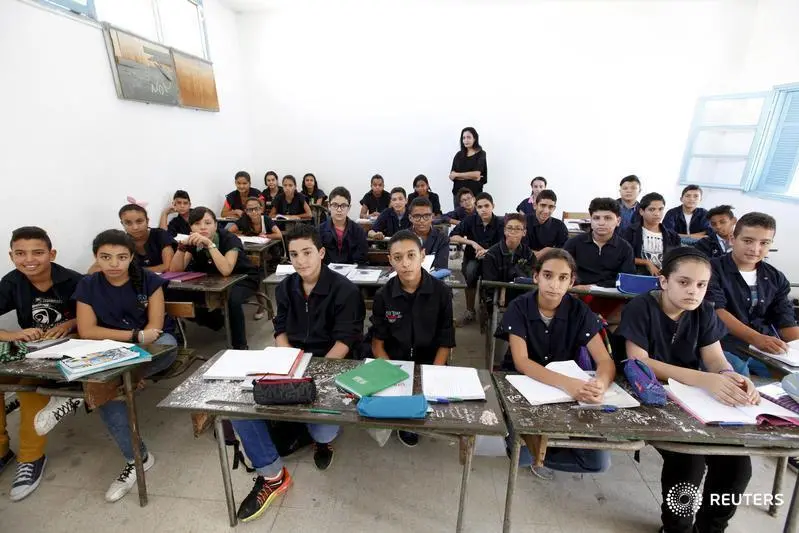PHOTO
Government authorities are looking to improve Tunisia's educational system with a spate of reforms targeting instructional quality and school infrastructure.
The overhaul, which runs from 2016 to 2020, will involve everything from new training institutions to upgraded facilities to private sector partnerships, in total costing an estimated TD4.1bn (€1.7bn), according to media reports.
Upgrades to the system
The round of reforms comes in response to the findings of a national consultation process, which included ministries, civil society organisations and trade unions. The subsequent “White Paper on Educational Reform”, published by the Ministry of Education (MoE) in May, lays out the policy priorities for addressing the country’s shortcomings in teacher training, curriculum and infrastructure.
One objective of the white paper is to increase professional training for teachers, including re-opening teacher training colleges, which have been closed since the 1990s. The facilities are tasked with training at least 6000 educators annually and will be supported by a number of other initiatives. The MoE, for example, recently signed an agreement with the Francophone University Association to open a national e-learning institute to familiarise certified teachers with remote teaching and ICT tools.
The school calendar is also getting an overhaul, with Néji Jalloul, minister of education, announcing in August that the academic schedule will be reorganised from a trimester to a semester system, extending the number of teaching days from 130 to 193, according to press reports. The government is also implementing a preparatory year prior to the first year of primary schooling.
Infrastructure is another key component of the white paper, and the government has recently announced plans to improve health and sanitation infrastructure in 34 schools, in collaboration with UNICEF. Lila Pieters, UNICEF representative to Tunisia, told media that the lack of infrastructure is one reason contributing to the level of school dropouts, especially among girls, with MoE statistics suggesting that as many as 100,000 students per year stop their studies prematurely.
For the second consecutive year, the MoE has also organised a “School Month”, calling for private funding or in-kind support, such as building materials, furniture or computers, to help refurbish dilapidated educational establishments.
Education for employment
The wide-ranging reforms should help improve both enrolment and matriculation figures but the government is also hoping to improve post-graduation employment, particularly among university graduates. Last year unemployment rates among university graduates reached 31.2% – twice the national average.
According to Leila Triki, dean of the Mediterranean School of Business at the South Mediterranean University, one of the main factors behind that high rate is the disconnect between taught curriculum and employer requirements, in part a function of the lack of private sector experience among university decision makers.
“The composition of the council affiliated with the MoE that oversees the modification and creation of new university degrees is problematic,” she told OBG. “One initiative that would address the country’s educational deficiencies would be to incorporate more private sector representatives in the development of university degree programmes.”
To help address this disconnect, the MoE launched the School-Friendly Businesses initiative. The programme aims to help close the skills gap by offering internships and other forms of private sector support to schools and students, with over 120 companies having committed to participate. The government is also working alongside the World Bank, who in February pledged to invest $70m for the Tertiary Education for Employability Project, which looks to help facilitate the development of employer-sponsored internships and career guidance.
Sector-specific initiatives are also being expanded, with the Tunisian National ICT Federation at work on the Digital Talent programme, a joint initiative with the International Finance Corporation. The programme aims to develop an ICT Capabilities Observatory to monitor employability criteria and an ICT academy to ensure adequate training. According to Zied Ladhari, former minister of vocational training and employment, the ICT sector has the potential to provide up to 10,000 entry-level jobs to recent graduates.
© Oxford Business Group 2016





















